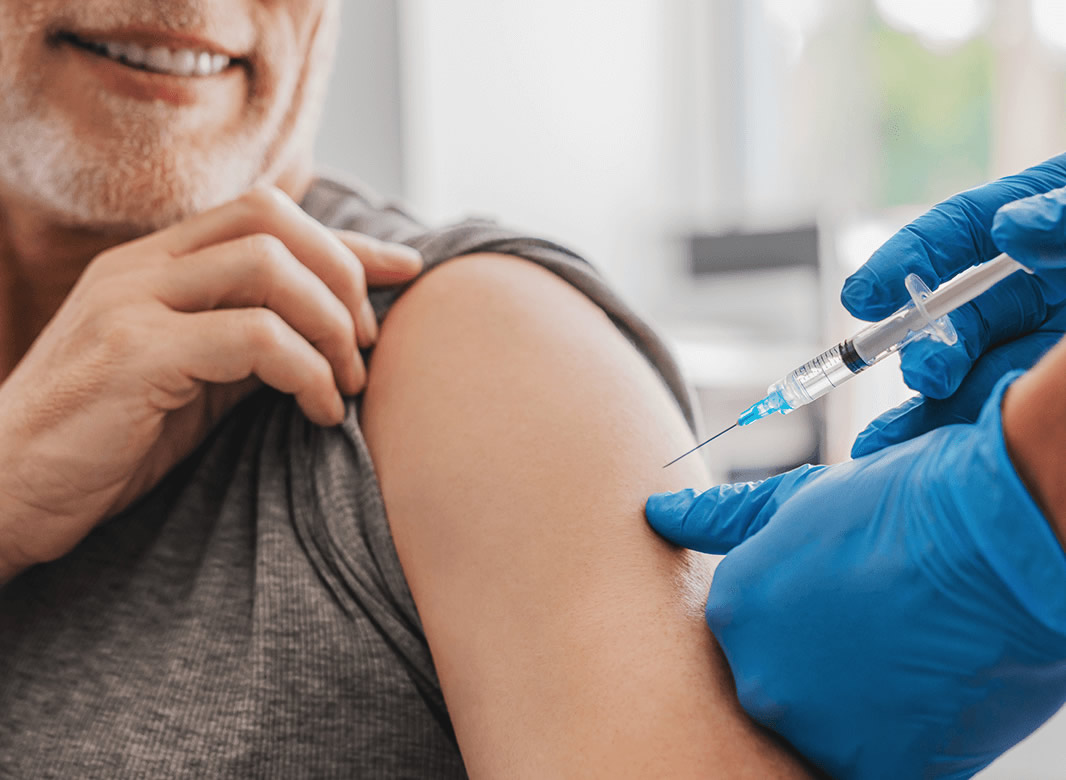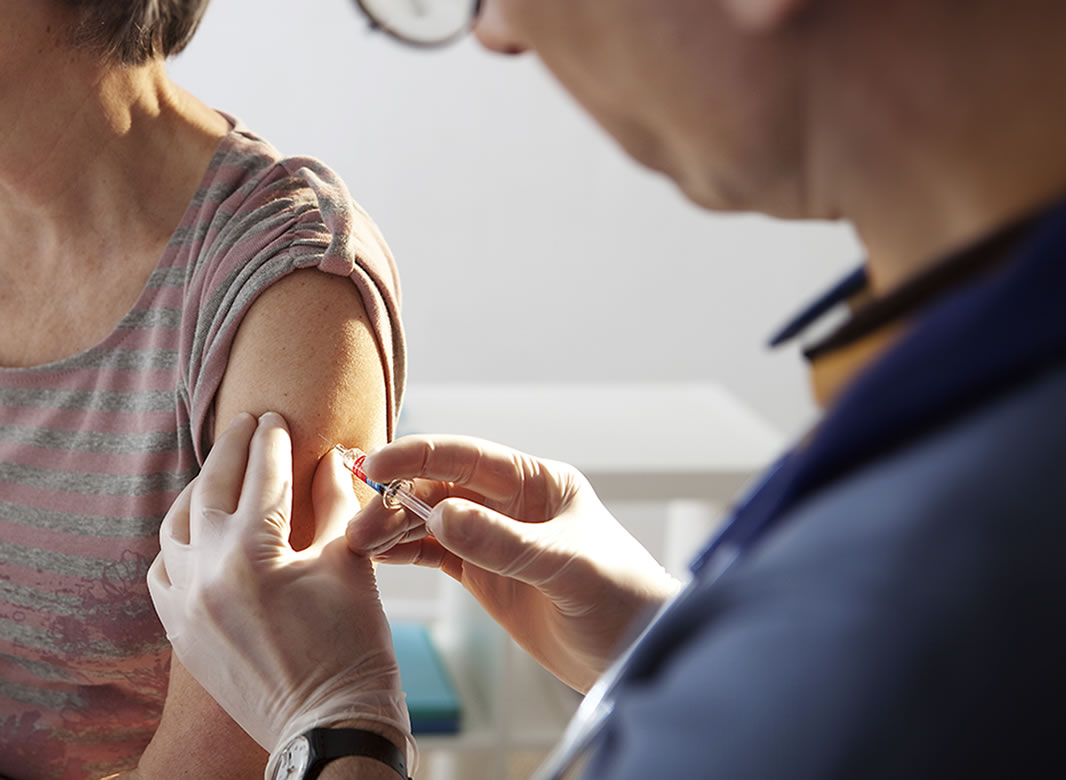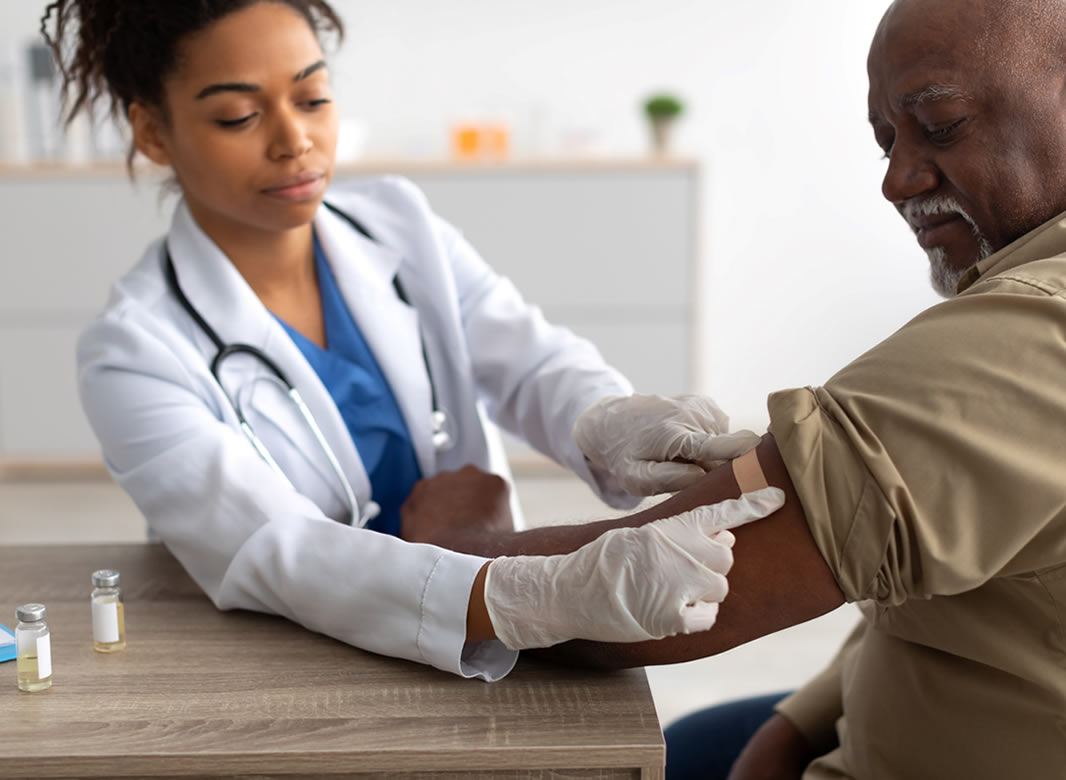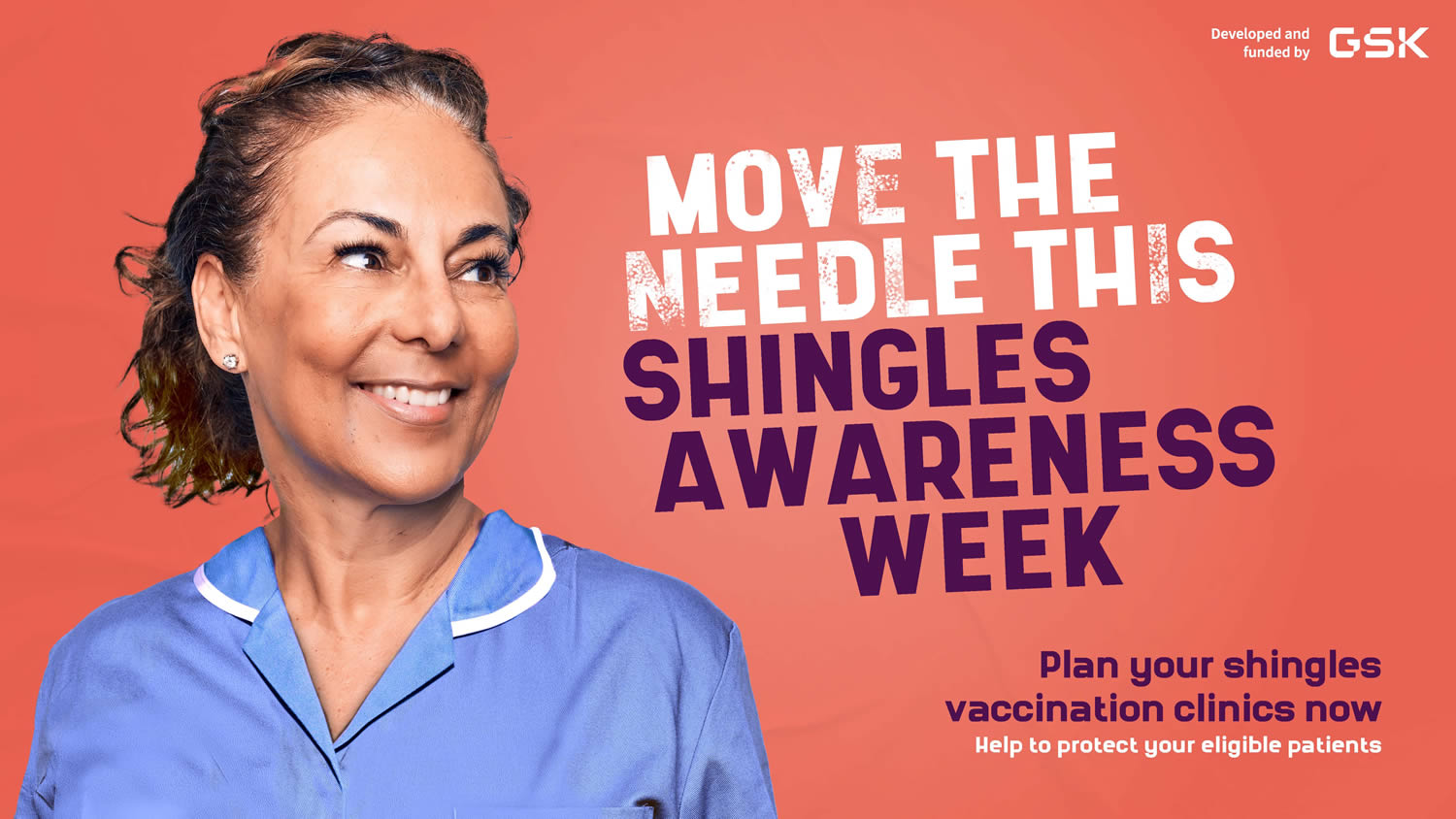Immunisation Leadership in Practice
August 2023
Read time: 4 minutes
Topic tags: Immunisation, Immunisation Lead, vaccine education, immunisation leadership
Return to Educational ResourcesPeer reviewed by Stacy Evans, Immunisation Nurse and Deputy Head of Quality and Safety for the Integrated Care Board for Cheshire and Merseyside.
Adverse events reporting and prescribing information can be found at the bottom of the page.
Healthcare professionals have been consulted by GSK and received honorarium.
Immunisation Leads: Key to delivering effective vaccination programmes
Busy day? Here’s a quick summary:
- Immunisation Leads play a key leadership role in delivering effective vaccine programmes, including coordinating, training, and overseeing members of the immunisation team, delivering vaccinations, keeping themselves up to date with immunisation information, and providing vital information to patients and healthcare bodies1
- Any organisation that either commissions, manages, or provides vaccinations is required to have a named vaccination lead to ensure efficient and effective delivery of vaccinations1
- Not all practices will use the specific ‘Immunisation Lead’ job title for this role, but it is critical to have someone who is responsible for ensuring that services meet core standards and that every contact opportunity for vaccinations are maximised within the practice1
- It is typically a practice nurse who takes on the role of an Immunisation Lead; however, it can be other members of the practice team, such as the practice manager
- Working in collaboration with the broader immunisation team, the Immunisation Leads are crucial in safeguarding public health and promoting community wellbeing and engagement1
- It’s important to explain the purpose of the vaccination to your patients. Starting the conversation prior to them reaching eligibility status ensures they are aware, informed, and ready to accept the vaccine once they do become eligible
- A top tip from Stacy Evans, an experienced immunisation nurse, is to make sure every patient contact counts. Read on to find out how
The varied responsibilities of an Immunisation Lead1–5
Why do we need an Immunisation Lead?
Immunisation is vital to help protect people from preventable diseases, like shingles. But what does it take to deliver a successful vaccination programme that maximises uptake? Who is involved and what does best practice look like?
There are a number of factors that need to be considered when implementing a successful vaccination programme. These include:
- Ordering and storing vaccines
- Administering vaccinations and monitoring patient safety
- Coordinating the identification of eligible people for vaccine invitation and course completion
- Delivering education to team members and patients
- Evaluating the success of programmes
- Scheduling dedicated clinics and the proactive call and recall of all eligible patients
There can be many different individuals in a practice involved in these processes. However, as you can see from the figure above, having a central person to coordinate both the team and vaccination activities is critical.
This is where the Immunisation Lead steps into the spotlight. Every practice is required to have an Immunisation Lead, although they may not be given that specific job title.1 It is often a practice nurse who takes on the role of an Immunisation Lead, but it is not required for the lead to be a clinician. If they are not a clinician, then they are required to work with and be supported by a clinician to ensure that the core standards are met.1
Immunisation Leads play a key role in ensuring vaccinations and routine immunisation schedules are delivered effectively, helping to protect more people in their community. Practices that have a designated Immunisation Lead leading the charge often see a higher vaccine uptake as a result.
Does your practice have a lead? If not, could this be you?
In this article, we explore their various responsibilities, highlighting the importance of immunisation leadership to coordinate, inform, and train members of the team to effectively deliver immunisation programmes.
What does an Immunisation Lead do?
Immunisation Leads ensure the effective and efficient delivery of immunisation services in their community. They are responsible for overseeing immunisation programmes within a healthcare setting, such as a GP practice, as well as coordinating activities relating to immunisation, including setting up vaccination clinics.
For me personally, immunisation is my passion and I have a good understanding around the topic. I enjoy providing vaccination programmes and have a strong interest in population health.

Stacy Evans
Immunisation Nurse and Educator
Cheshire and Merseyside
Any organisations that either commission, manage, or provide vaccinations are required to have an Immunisation Lead to ensure efficient and effective delivery of vaccinations,1 with their responsibility varying depending on practice requirements. This individual should have access to information and facilities as required to carry out their role safely and effectively.1
Not all practices will use the specific ‘Immunisation Lead’ job title for this role, but it is critical to have someone who is responsible for ensuring that services meet core standards and that opportunities for vaccination are maximised for their patient population.1
Below we show some of the varied responsibilities that Immunisation Leads may need to carry out as part of their role.
Coordination1
- Planning, working, and liaising with other members of their team; sharing and coordinating tasks to ensure the efficient delivery of the programme
- Identifying all people who are eligible for the vaccination, including those who are more difficult to access; like those who are housebound for example
- Working with staff in supported living settings and care homes to ensure they have a policy in place regarding vaccinations
- Communicating with staff in secondary and tertiary care providers who do not provide vaccines to ensure that people eligible for vaccinations are identified and are signposted to relevant services
- Liaising with community services such as health visitors, school nurses, and district nurses within the locality
- Working with voluntary agencies, faith leaders, and Gypsy and Roma communities for example, to identify and meet the needs of eligible hard-to-reach populations
Vaccine management1,2
- Overseeing procurement, storage, and distribution of vaccines within the healthcare facility to make sure that there is an appropriate stock of vaccines, particularly seasonal vaccines, and that all vaccines are stored according to manufacturer’s instructions
- Ensuring recommended guidelines, policies, and procedures are followed to maintain vaccine potency and prevent avoidable wastage
Vaccine administration1,3
- Ensuring appropriate staff are trained, skilled, knowledgeable, and competent in administering vaccines, and provide training and support where necessary
- Developing and implementing standardised procedures for vaccine administration, and monitoring adherence to best practices in accordance with national guidance
Top tip!
Depending on the vaccination being given, different staff members can take the lead. Trained healthcare assistants and healthcare support workers can administer specific adult vaccines, provided that they have completed training and are competent in vaccinating, and have a supervising clinician as it is a delegated role.
In the case of shingles for example, a Patient Group Direction (PGD) is required, which means an eligible patient can receive the vaccine without needing to see a prescriber first.4 Nurses using PGDs must have been assessed as fully trained and competent to use them and must meet the requirements as set out in the PGD.4 With a new shingles PGD being valid from 1st September 2023, the PGD must have received signed authorisation, and individual practitioners must be authorised by name before working according to it. Accountability is essential and PGDs do not remove the inherent professional obligations or accountability of practitioners.4
If you are administering vaccines, the National Minimum Standards5 require you to have completed competencies, which includes participating in a 2-day introductory course. The training provides the evidence-based practice behind immunisation care and information about our national immunisation programmes. The learning opportunity supports clinical experience gained working with an experienced mentor in practice, who will be able to sign off your competency record6 (the RCN offer an updated version of the tool). Experienced vaccinators often appreciate using the competency as a self-assessment tool for their professional revalidation or continuing professional development.

Joanna Lowry
Immunisation Specialist Nurse and Educator
Hampshire
Vaccine safety monitoring1
- Monitoring and reporting any adverse events following immunisation
- Following appropriate measures when addressing adverse events
Quality assurance1
- Certifying the quality and accuracy of immunisation records
- Generating and following processes to verify and document vaccine doses administered, maintaining accurate immunisation records and reconciling any discrepancies
Top tip!
Recording vaccinations with the appropriate code as shown below will ensure correct reimbursement and accurate tracking of vaccine uptake in your practice.
An example of how it should be done in practice can be found in the recent updates to the Shingles National Immunisation Programme.7
The following codes for the SHINGRIX® (herpes zoster vaccine, recombinant, adjuvanted) vaccine can be used:7
Immunocompromised & Immunocompetent
First dose: 39756611000001109, 39655511000001105, 38737511000001105 or 38736811000001106
Second dose: 1326111000000107
In my experience, Immunisation Leads will participate in specialist training and learning, implement best standards, and monitor for updates to immunisation programmes. Their role is to disseminate knowledge and national recommendations among the whole practice and the rest of the team.

Joanna Lowry
Immunisation Specialist Nurse and Educator
Hampshire
Education and training1
- Providing education and training to healthcare providers across a range of topics, including vaccine-preventable diseases, immunisation schedules, vaccine safety, correct vaccine administration techniques, consent, communication, and governance
- Staying updated on the latest research and recommendations – find out more at illuminate’s Shingles National Immunisation Programme page
- Disseminating the latest information and updates to guidelines with all clinical staff who will advise or signpost patients in relation to the immunisation schedule and eligibility
- Ensuring immunisation is on the agenda and prioritised at practice meetings, on practice social media channels and digital messaging, and at wider team meetings
Programme evaluation1,8
- Monitoring and evaluating the performance of immunisation programmes within their clinical setting
- Assessing vaccine coverage rates for their area, identifying approaches for improvement and implementing strategies to enhance immunisation uptake and compliance
For you to see the benefits of your vaccine programme, you need to understand your uptake and your decline rates – and the reasons for successes or challenges – to make appropriate adjustments. For example, recording why patients have declined may allow you to address any concerns or misunderstandings.

Stacy Evans
Immunisation Nurse and Educator
Cheshire and Merseyside
Collaboration and networking
- Collaborating with stakeholders within primary care networks, and with external bodies such as public health departments, immunisation coalitions, and community organisations
- Participating in immunisation-related meetings, conferences, and committees to stay informed about best practice
- Sharing best practice experience and potentially even contributing to the development of immunisation guidelines
Patient communication1
- Addressing vaccine hesitancy and multi-dose compliance by increasing awareness and providing evidence-based information about vaccines to patients, families, and healthcare providers
- Making patients aware that they are eligible for the vaccination and invite them for an appointment through their preferred communication channel (phone call, SMS, etc.)
- Handling concerns and misconceptions around vaccinations
- Promoting vaccine acceptance through effective communication strategies
Top tip!
Ways immunisation teams can address these challenges include:
- Sharing educational materials such as posters and brochures to provide accurate vaccine information. These can be distributed in their GP practice and other healthcare settings, as well as schools and community centres, to maximise outreach
- Attaching information and FAQs to patient appointment texts/emails/letters when they become eligible
- Ensuring that reception staff are confident in answering questions and addressing patients concerns
- Using social media or joining online local community groups to address common misconceptions or answer questions
- Collaborating with community groups such as schools and religious institutions to reach a broad audience
Communicating and actively inviting patients for the vaccine as soon as they’re eligible is essential. It’s important to explain the purpose of the vaccine and what it’s protecting against as well as making them aware of common side effects they may experience after the vaccine, such as a sore arm or pyrexia.

Stacy Evans
Immunisation Nurse and Educator
Cheshire and Merseyside
The specific responsibilities of an Immunisation Lead may vary according to practice due to the size and complexity of the practice, or the overall population of its patients, for example.
In some practices, Immunisation Leads may be responsible for vaccine procurement, inventory management, and compliance with cold chain requirements. In others, these tasks may be delegated to specific personnel or departments, allowing the Immunisation Lead to focus more on the clinical aspects of vaccine delivery, such as vaccine safety and monitoring, adverse event reporting, and staff training, reviewing uptakes and assessing the rationales for declining the offer.
Overall, the role of an Immunisation Lead and immunisation team is crucial in safeguarding public health and promoting community well-being.
By overseeing vaccine distribution, educating the public, monitoring immunisation coverage, and collaborating with other healthcare professionals, Immunisation Leads play a pivotal role in helping prevent the spread of infectious diseases and helping protect individuals from vaccine-preventable illnesses.
To find out more about how you can optimise your vaccine practice and increase uptake levels in your community, check out Stacy’s top tip below.
Stacy's top tip: Every patient contact matters

For me, it’s all about being open and transparent with your patients when communicating with them about vaccinations. Explain the purpose of the vaccination and what it is protecting against prior to their eligibility, in addition to when they are eligible. It is also essential you highlight potential side effects they may experience. If they have been missed, use opportunities and make every contact count, such as through appointments and call/recall services to discuss the vaccination. Always offer advice and answer questions about vaccinations, and if you are not aware of the answer make it clear you will go and find the correct information for them and advise them of the answer as soon as possible.

Reviewed by: Stacy Evans
Stacy Evans is a registered general nurse and a registered sick children’s nurse, who has been working in the NHS for 35 years. She has a wealth of clinical experience working in paediatric units where she developed an interest in immunisation followed by running immunisation programmes as a practice nurse, school nurse, sexual health nurse and a clinical screening and immunisation manager. Her current role is Deputy Head of Quality and Safety. She is based within the Integrated Care System as part of the Integrated Care Board for Cheshire and Merseyside.

Delivering the Shingles National Immunisation Programme in your practice
Explore our handy infographic filled with practical advice and guidance, and a downloadable checklist detailing key steps for implementation.
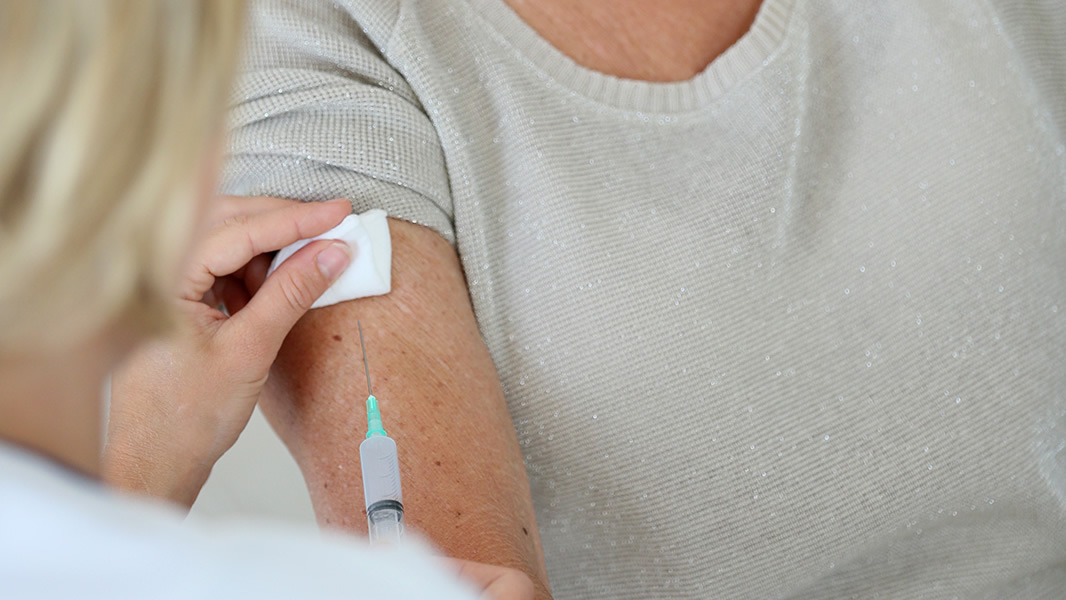
Shingles National Immunisation Programme
Discover the latest guidance on the Shingles National Immunisation Programme
References
- NICE. NG218. Available at: https://www.nice.org.uk/guidance/ng218/resources/vaccine-uptake-in-the-general-population-pdf-66143781919429. Accessed May 2024.
- UKHSA Green Book Ch 28a. Shingles. 2024.
- Immunisations UK. Training courses. Available at: https://immunisationsuk.co.uk/training/. Accessed May 2024.
- GOV.UK Shingrix v2.00 patient group direction. Available at: https://assets.publishing.service.gov.uk/government/uploads/system/uploads/attachment_data/file/1171448/Shingrix_v2.00_FINAL_2023_1707.docx. Accessed May 2024.
- GOV.UK. Immunisation training standards for healthcare practitioners. Available at: https://www.gov.uk/government/publications/national-minimum-standards-and-core-curriculum-for-immunisation-training-for-registered-healthcare-practitioners. Accessed May 2024.
- Royal College of Nursing. Immunisation knowledge and skills competence assessment tools. Available at: https://www.rcn.org.uk/professional-development/publications/immunisation-knowledge-and-skills-competence-assessment-tool-uk-pub-010-074. Accessed May 2024.
- UK Health Security Agency. Vaccine update: Issue 340, July 2023. Available at: https://www.gov.uk/government/publications/vaccine-update-issue-340-july-2023-shingles-special-edition/vaccine-update-issue-340-july-2023-shingles-special-edition#change-of-vaccine. Accessed July 2023.
- UK Health Security Agency. Increasing vaccine uptake. Available at: https://ukhsa.blog.gov.uk/2019/05/16/increasing-vaccine-uptake-strategies-for-addressing-barriers-in-primary-care/. Accessed May 2024.
March 2025 | PM-GB-ABX-WCNT-230075 (V3.0)
For the SHINGRIX® (herpes zoster vaccine, recombinant, adjuvanted) prescribing information, click here.


